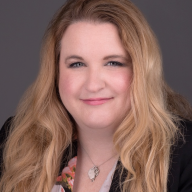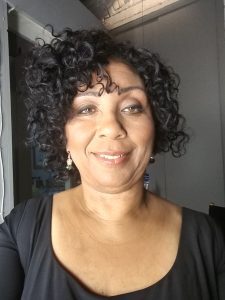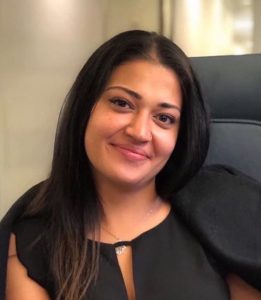Child Marriage Survivors Warn About Possible Exploitation of Girls During the Pandemic

Child and forced marriage survivors Naila Amin (top left), Genevieve Meyer (top right), and Sherry Johnson (bottom) weigh in on legislations that allow online marriages.
To help curb the spread of COVID-19, local governments have found many ways to tend to the needs of their residents while not requiring in-person visits. One example is online marriages, a practice several states have picked up since the pandemic hit the U.S. But in the states that allow minors to marry and offer meager safeguards to protect children from being forced to marry, a new practice of online marriage brings concerns of exploitation.
Since the onset of the pandemic, many states have allowed marriages to take place virtually. This decision is understandable as we do everything in our power to continue our lives uninterrupted as much as possible. But allowing online marriage licenses can have dangerous consequences to children who are at risk of being forced into marriage.
These children are in the 46 states that still do not ban what the U.S. Department of State deems a “human rights abuse” – child marriage. Perpetrators in these states may be emboldened to take advantage of online marriage to hide what could easily be the forced marriage of a child. By taking away the need to meet in person with a judge or clerk, one last safeguard has been removed for a minor hoping to avoid marriage. Similar dangers lurk over adults who are at risk of forced marriage.
In some areas, video conferencing is used to process an application and to perform the oath ceremony, making it even easier to cover up a marriage that is forced. We asked Sherry Johnson, Genevieve Meyer, and Naila Amin, survivors of child and forced marriages, to weigh in on this issue.
AHA Foundation: Some states have begun offering virtual marriage licenses in response to the COVID-19 pandemic with application and oath ceremonies conducted via phone video conferencing. Knowing that thousands of child marriages are facilitated every year even without this new potential loophole, what is your reaction to this new process?
Sherry Johnson: If everything else at a courthouse has to wait, I don’t think marriage is something that has to be done in a life or death situation, where someone has to do something by a deadline as far as marriage is concerned. It should be something that they can wait to do when the time is right.
AHA: Do you think girls are at a higher risk because of this loophole?
Sherry: This rule allows pedophiles and people who want to take advantage of children to use it to their discretion.
AHA: If you could talk to legislators in states lacking child marriage protections, what would you say?
Sherry: Don’t allow this to happen. Don’t allow a child to ruin their life not knowing what they’re getting into when it comes to marriage. The legislators know what can happen to a child that is forced into marriage because of people like me and your group that speaks the word out and shines light on the damage that can be done to anybody getting into marriage as a child.
If you are aware of child marriages and don’t do anything as a legislator then you are just as guilty as the perpetrator. It’s like saying there’s a door that needs to be fixed and you have all the tools to fix the door, but you’re not going to. Why even have the tools then?

Genevieve Meyer is a survivor of child marriage from California. (Photo courtesy of Resiliency Foundation)
AHA Foundation: Some states have begun offering virtual marriage licenses in response to the COVID-19 pandemic with application and oath ceremonies conducted via phone video conferencing. Knowing that thousands of child marriages are facilitated every year even without this new potential loophole, what is your reaction to this new process?
Genevieve Meyer: In the haste to adapt to life during this COVID-19 pandemic, it can be difficult to also foresee the unintended consequences of those adaptations. One of these areas is the issuance of online marriage licenses. This is a dangerous time for exploitation and forced marriages. Families are all sheltering in place at home. Children are not in school or participating in activities. If something like a forced marriage is being organized at home, the child will not have any opportunity to seek outside help.
AHA: Do you think girls are at a higher risk because of this loophole?
Genevieve: Over the last few years, we at the Resiliency Foundation have joined other organizations in a call to ban child marriage nationwide in the United States. Only four states have outright banned child marriage and others have tried to supplement a ban with additional protections for minors, some states have done nothing to address this issue. This has only served as an obstacle for accomplishing a child marriage, not complete prevention.
Exploitive parents and predators have quickly adapted to these obstacles and have just bypassed these protections by going to neighboring states with more lax laws. By having some states issuing online marriage licenses, this could remove even the obstacle of travel and streamline this abusive practice.
AHA: If you could talk to legislators in states lacking child marriage protections, what would you say?
Genevieve: It is unclear at this point that with the haste to offer online marriage licenses that legislators considered the risks of forced and child marriage. With an online marriage license, there is even less of an opportunity for a child to get help. We are watching this issue very closely and are concerned about the possible consequences of online marriage licenses.
AHA Foundation: Some states have begun offering virtual marriage licenses in response to the COVID-19 pandemic with application and oath ceremonies conducted via phone video conferencing. Knowing that thousands of child marriages are facilitated every year even without this new potential loophole, what is your reaction to this new process?
Naila Amin: When I first heard about this new law which would handout people virtual license marriages— I was infuriated. It’s hard as it is to end child marriage in America and then to have it go virtual and be even easier for the perpetrators to get away with it…it really made my blood boil.
AHA: Do you think girls are at a higher risk because of this loophole?
Naila: I think it is extremely irresponsible for states to come out with this law especially when they lack laws banning child marriages, they are making it easier for the oppressor to pray on the weak.
AHA: If you could talk to legislators in states lacking child marriage protections, what would you say?
Naila: If I could talk to legislators in the states I would tell them my life was ruined by these lax laws, let’s not ruin any more lives.



